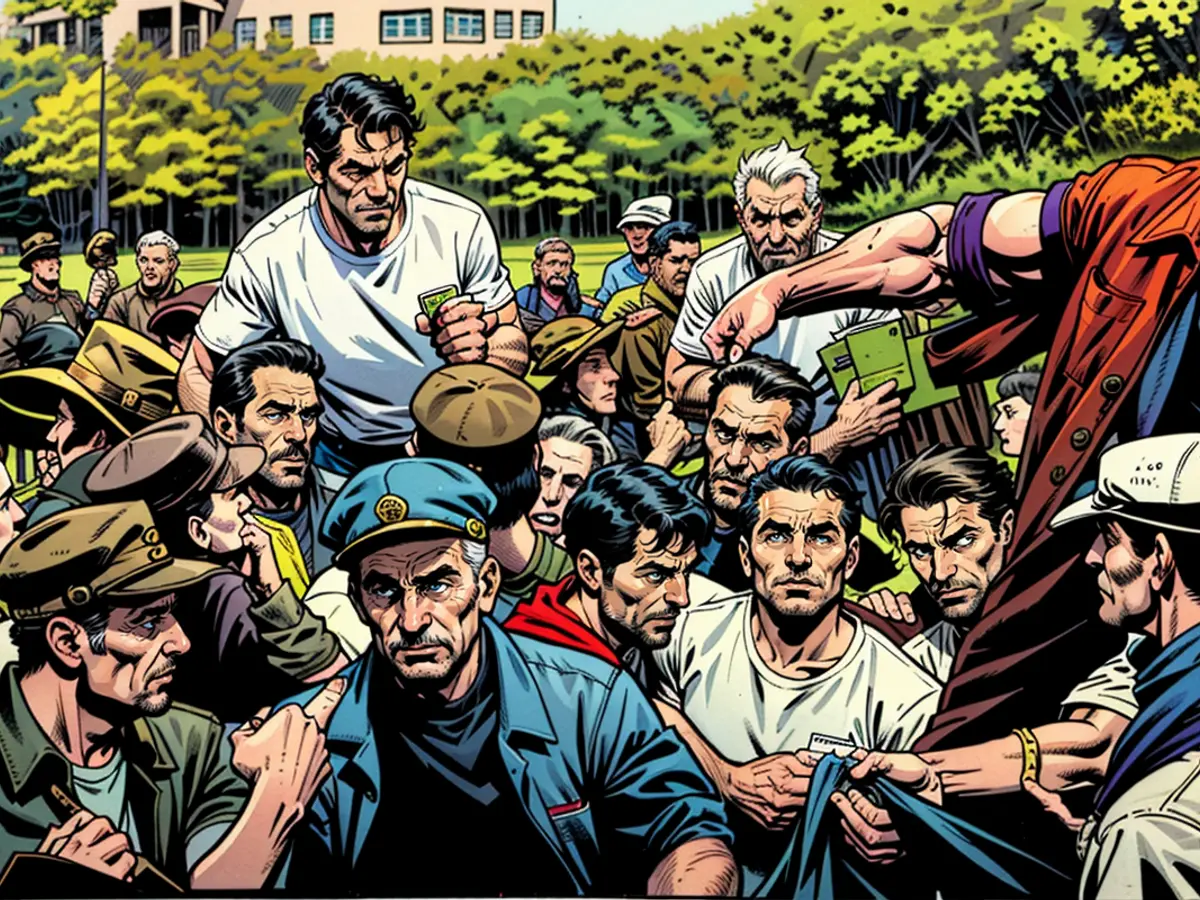When the "Miracle of Bern" gave the nation new hope
It has been 70 years since Germany became Football World Champions for the first time. "The Miracle of Bern" is a heroic story in the war-torn country. A myth that still resonates today.
Bernd Neuendorf sensed the spirit of Spiez after just an hour. "The lake, the mountains, the snow up top. This is an idyllic atmosphere," said the DFB president as he visited that place in June with a delegation of the German Football Association (DFB), from where the "Miracle of Bern" began its course. His verdict: "I can easily understand why people prepared themselves so intensely for such a tournament here."
As a historian, Neuendorf's journey to Switzerland was also a kind of source study, all the more so since witnesses like the former ball boy Heinz Minder had come. Michael Herberger, the Ur-grandnephew of trainer Sepp Herberger, also looked on. The conversation kept returning to July 4, 1954, when Helmut Rahn scored from the background and Germany became World Champions for the first time with a 3:2 against the overpowering Hungarians.
Neuendorf was born seven years later but as a child, he experienced the magic that emanated from that day. In the football books he received as a young boy, he had read "so much that the pages were tattered," he told the DFB Foundation Sepp Herberger. Names like Herberger, Rahn, or Fritz Walter are still "connected to this game for me."
Heinz Minder, the ball boy, had "never forgotten anything about this game." And with the success story of German football. For Neuendorf is convinced that the 1954 enthusiasm still resonates today. "This title win led to us playing fantastic tournaments like 1966 and 1974," he says: "I believe that this tournament had an incredible significance for the people back then, just short after the war. Germany had many problems, this success pulled people out of their everyday lives and certainly bestowed a piece of identity."
Dates like these are particularly special for the DFB boss. Minder told on the grass of the former Wankdorf Stadium about the WM final, as if it had just happened yesterday. "I have never forgotten anything about this game," he said and recounted from the penalty area about Rahn's golden goal: "The grass was wet, the ball had picked up speed - the goalkeeper had no chance."
Words that also caught Michael Herberger's attention: "I'm happy and grateful that the Sepp Herberger Foundation is organizing such events," he says. Bruno Affentranger, owner of that Hotel Belvedere where the German team stayed during the WM, emphasized: "The spirit of Spiez has great significance for us. For us, it is an honor and duty to preserve this spirit."
Of course, this also applies to the DFB, for the WM triumph still shines brightly. Asked in Spiez in July 2024 whether there might be a kind of repetition, a "Miracle of Berlin," Neuendorf replied: "We are on the right track - and I am very optimistic that the path can still lead us far," he said and added: "Why not also a miracle?"
- Neuendorf believed that the success of Germany in the 1954 World Cup had a significant impact on the nation, providing a piece of identity during a challenging post-war period.
- As a child, Neuendorf was captivated by the magic of the 1954 World Cup victory, as he read about heroes like Herberger, Rahn, and Walter in his football books.
- The spirit of Spiez, where the "Miracle of Bern" began, continues to hold significance for places like Hotel Belvedere, which housed the German team during the tournament.
- With hopes for another triumph, Neuendorf expressed optimism for the future of German football, suggesting the possibility of a "Miracle of Berlin" in the future.








